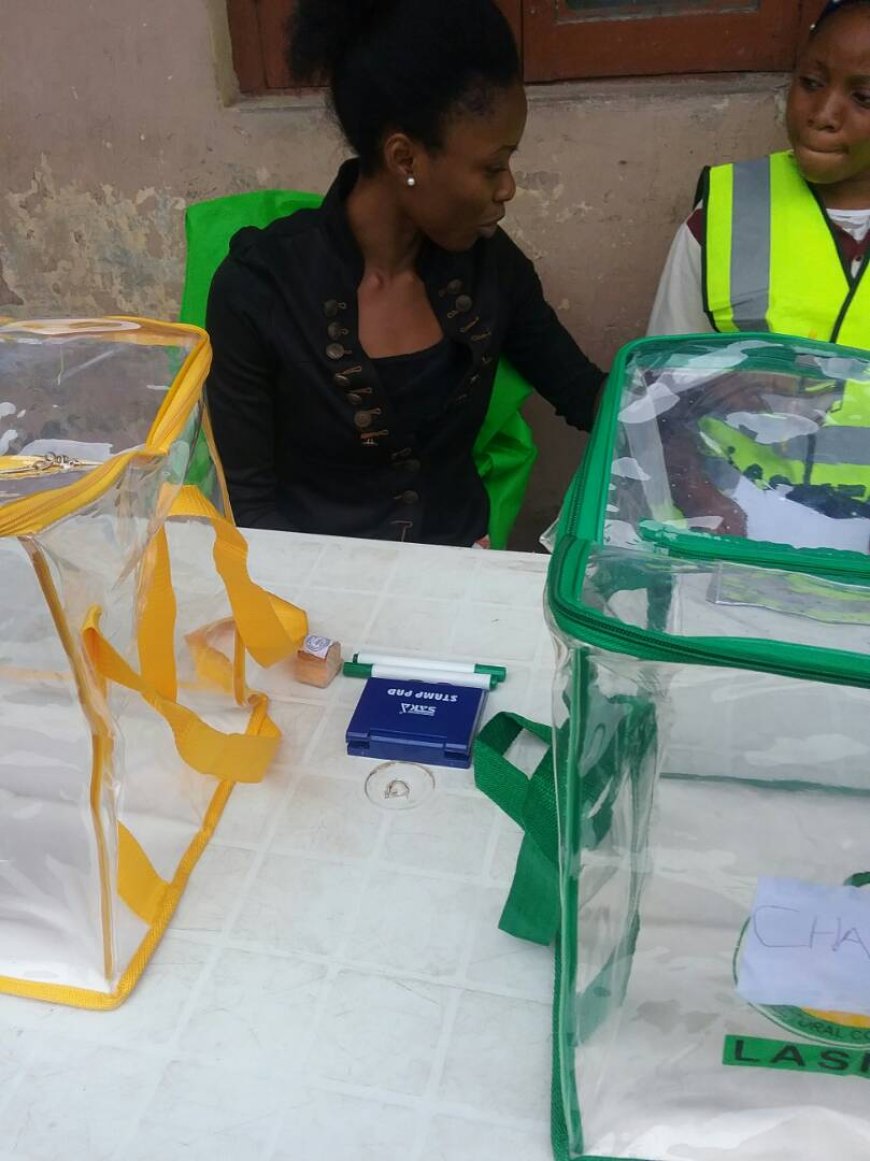Lagos LG poll: LASIEC blames logistics for widespread delays in Abule Egba, Meiran

Officials of the Lagos State Independent Electoral Commission in Abule Egba and Meiran areas of the state have blamed logistics errors for their late arrival, which delayed voting in no fewer than 15 polling units on Saturday.
According to LASIEC announcements, voter accreditation was expected to commence as early as 8:00am across the polling units, with the voting exercise to begin shortly after.
However, our correspondents, who monitored the situation in some polling units along Old Ota Road to Abule Egba and parts of Meiran, observed that the exercise did not start on time, as most of the electoral officials arrived very late.
At Polling Unit 047 at Kabowe Bus Stop in Meiran, the process had not started as of 9:30am due to the officials’ late arrival. The venue also appeared deserted, with no voters in sight.
The same scenario played out at Polling Unit 029 located at Captain Bus Stop, Polling Unit 107, situated on Unity Street, and Polling Unit 028, all in the Olota area, as LASIEC officials had not arrived at the venues by 10:00am.
Similar situations occurred at other polling units along Ekoro Road leading towards Abule Egba Junction, including PU 011, PU 034, PU 061, PU 017, PU 010, PU 011, PU 027, PU 022, PU 045, and PU 008, delaying voting until around 10:30am.
In separate interviews with our correspondent, some LASIEC officials attributed their late arrival to the wrong sorting of materials, deployment to incorrect addresses, and fuel shortages, among other logistical lapses.
We were at the local government office to sort out the election equipment, but the location directions given to us weren’t clear. So, we had to call the office again to get a clearer description of our polling unit. That’s why we got here late,” said the Presiding Officer at Polling Unit 039 at Meiran Bus Stop, Grace Tolape.
Decrying the low voter turnout, she said, “As of a little past 12 p.m., fewer than 30 people have voted out of over 1,000 registered voters. Most of the people have failed to come out; only a few have been turning up.”
A Polling Clerk at Unit 017 on Ekoro Road, Owolabi Isaac, said the logistics blunder was mainly responsible for the delay.
“The main reason why we came late was that there was an interruption in the sense that the number written on our envelope doesn’t tally with the actual number of the polling unit. For instance, the number written outside our envelope is Unit 16, but inside the envelope, we have Unit 17. That discrepancy caused the problem,” he said.
Isaac further lamented the mental and physical stress caused by the logistical mix-up.
He said, “We walked a lot of miles before we got here. We saw Unit 16 on our envelope, but when we got there, we met people there. So, they asked us to check inside the envelope, which we did and saw Unit 17.
“We are not the only ones affected by this; several other officials faced the same thing. We had to start trekking from one street to another. As we speak, the exercise is yet to start, but I have exhausted my strength already.”
When asked what caused the discrepancy, he said, “Those who addressed the envelopes and those who put the electoral materials in them caused the problem.”
The Presiding Officer of Polling Unit 07, who refused to give her name, said her team’s vehicle at some point ran out of fuel due to the misdirection.
“We missed our way several times. We drove through Ikola into Kola, yet we couldn’t find the location. In the midst of the confusion, someone saw the address and told us it was after the health centre in Meiran.
“But before we could get there, as you can see, our vehicle ran out of fuel. So, we had to call the office, and they said they would send someone to pick us up, which was the private car you saw,” the distraught official said.
A LASIEC official at Polling Unit 034, who pleaded anonymity, also blamed the logistics hitch.
“The problem was that INEC changed most of the codes, so the INEC codes were actually different from the ones LASIEC gave us. That was why it was very difficult for us to locate the polling units,” she explained.
“Secondly, we had to drop other people at their polling units before coming here. Normally, it’s supposed to be two polling units per vehicle, but due to some reasons, many of us had to pack ourselves into a single bus. The bus had to start dropping people at their locations before we got to ours. That also caused the delay

 admin
admin 


